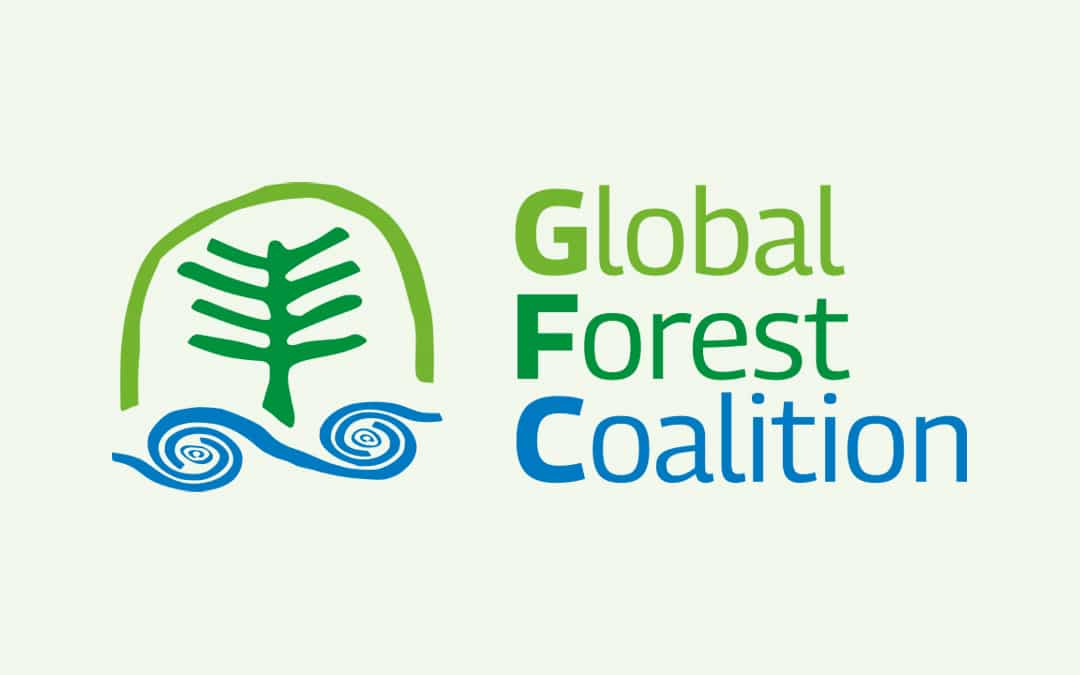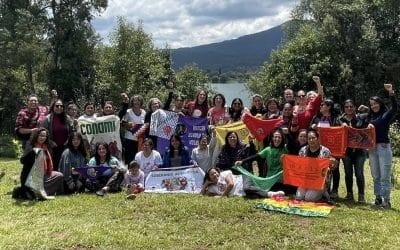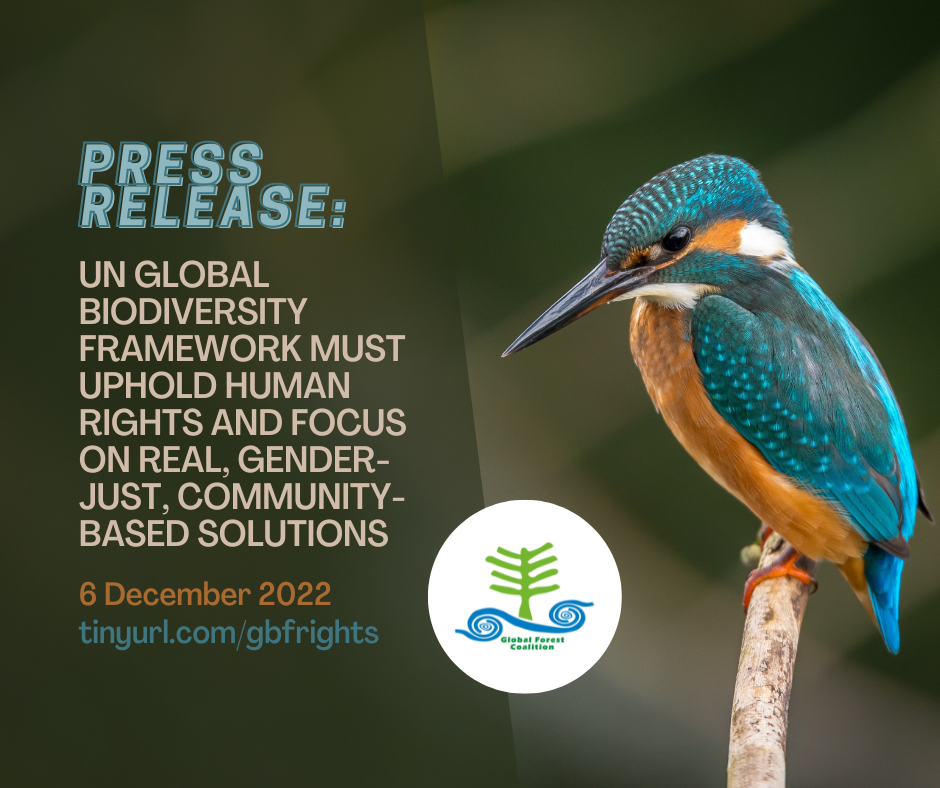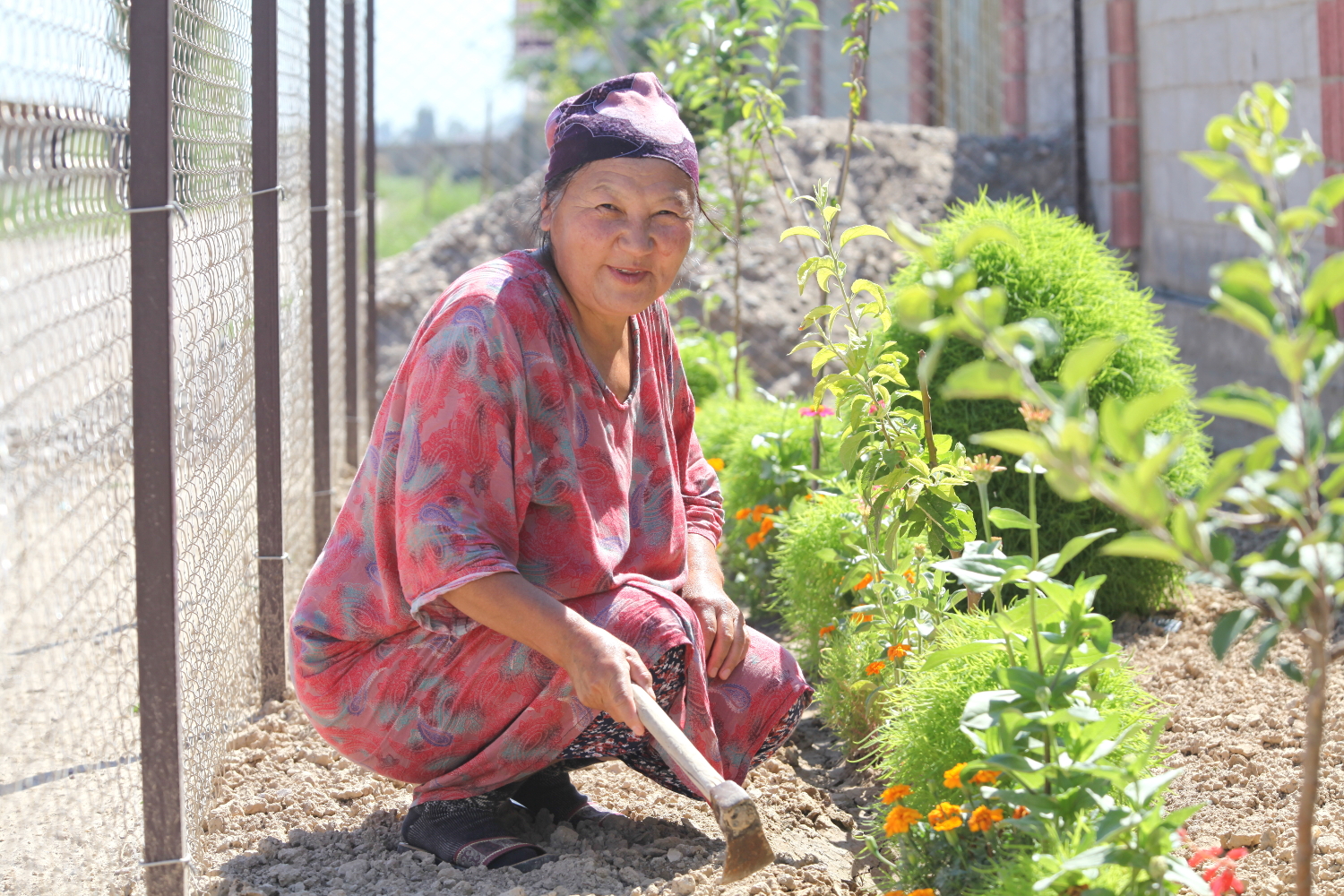Español debajo
Opening statement as the Conference of the Parties to the Convention on Biological Diversity starts in Hyderabad, India.
Madame Chair, distinguished delegates and observers:
The CBD Alliance warmly welcomes the new CBD Executive Secretary and his stated priority: Implementation.
We pledge to help as strongly as we can to achieve this priority.
In view of this, we recall the triple objectives of the Convention that should be upheld as the foundation for all aspects of the Convention: from elaboration of decisions to implementation to monitoring, evaluation and reporting.
The CBD Alliance strongly rejects any regression on these objectives in any new decisions, and in implementing the CBD, and the retirement of existing decisions that still require implementation. We urge you to ensure that this is not happening and the following fundamental principles are reaffirmed throughout:
- The value of biodiversity and the conservation of life itself – well beyond placing a price tag on it
- Sustainable use and equitable benefit-sharing
- The Precautionary Principle
- The ecosystem approach
- The vital role of women, and of traditional knowledge, livelihoods, institutions, and rights of the primary defenders of biodiversity: indigenous peoples and local communities, including fisherfolk, peasant farmers, and pastoralists
What does this mean for decisions to be taken at this COP?
- The CBD as International Law: The COP must not fail to recognise the legally binding nature of the treaty and should fulfill its statutory mandate to “keep under review the implementation of the Convention”.
- Aichi targets and implementation: Adopt measurable indicators, milestones, and regular reporting on the Aichi targets in order to incentivize implementation of the CBD and its strategic plan, including a mid-term review to be published as GBO-4;
- Finance: We call on parties to fulfill their obligations to provide adequate financial resources, especially to avoid a corporate takeover of the implementation of CBD objectives.
- Perverse incentives: Phase out perverse legal and economic incentives and investments that lead to biodiversity loss.
- Marine and coastal: Underline the importance of taking forward the process of describing and identifying Ecologically and Biologically Significant Areas (EBSAs) with the full and effective participation of Indigenous Peoples and local communities, s and through the integration of their traditional, scientific, technical, and technological knowledge.
- Inland waters: Review, phase out, and prevent projects and processes that damage freshwater biodiversity, including large hydroelectricity projects, and international funding and endorsement of such projects, for example, the CDM under UNFCCC.
- Protected Areas: Improve implementation of Element 2 of the Programme of Work on Protected Areas; including through collaboratively developing criteria for Aichi Target 11’s “other effective area-based conservation measures”, such as self-defined Indigenous Peoples and Local Community Conserved Territories and Areas (ICCAs).
- Forests: Secure sufficient financial resources within and outside the Secretariat to implement the CBD forest biodiversity work programme and related decisions, including elaboration of an appropriate forest definition, rather than focusing on non-binding guidelines for voluntary REDD+ safeguards.
- Poverty: Address the systemic factors that lead to insecure rights to natural resources and the unfair distribution of power and wealth, which lead to biodiversity loss by, among other measures, ensuring equitable access to and utilization of natural resources, and conferring collective rights to relevant peoples and communities.
- Agriculture: Defend, support and protect the rights of smallholder and peasant farmers, pastoralists, and artisanal fishers, who conserve and develop agricultural biodiversity in situ thereby securing food sovereignty.
- ABS: Complete the issue of the legally binding ABS compliance mechanism and prepare the Protocol for implementation and create the necessary legislative, administrative or policy measures to realise the CBD provisions on ABS;
- Biofuels: Go beyond empty text on voluntary tools, standards, certification, methodologies and definitions, and heed the calls for an end to subsidies, mandates and targets for biofuels, recognising that industrial biofuel crops are a major contributor to landgrabbing and biodiversity loss.
- Synthetic biology: Adopt a moratorium on the environmental release and commercial use of synthetic biology until there is an adequate scientific basis to justify their use, and until the associated risks for biodiversity, socio-economic risks, culture and traditional knowledge, practices and innovations have been properly assessed.Geo-engineering: Strenghten the de facto moratorium of 2010, ban field testing and affirm that the CBD is the appropriate body to oversee geo-engineering.
The GFC is an active participant of the CDB Alliance http://www.cbdalliance.org/ – The Convention on Biological Diversity Alliance (CBD Alliance) is a loose network of activists and representatives from non-governmental organizations (NGOs), community-based organizations (CBOs), social movements and Indigenous Peoples’ Organizations (IPOs) advocating for improved and informed participation in CBD processes. The Alliance does not act as a representative of civil society organizations (CSOs) around the CBD, nor does it speak for the diversity of civil society’s voices. Rather, it exists in order to facilitate more diverse, coordinated, and effective civil society input into CBD policy-making and processes. The Alliance is open to all CSOs working progressively on CBD issues and is governed by a representative board, democratically selected from the community.
——————–
En Español:
PRONUNCIAMIENTO DE LA SOCIEDAD CIVIL POR LA INAUGURACION DE LA CONFERENCIA DE LAS PARTES AL CONVENIO EN DIVERSIDAD BIOLOGICA (CDB-COP11)
Señora Presidenta, distinguidos delegados y observadores:
La Alianza CDB le da una calurosa bienvenida al nuevo Secretario Ejecutivo del CDB con su prioridad establecida: la Implementación.
Nos comprometemos a ayudar tanto como sea posible para lograr esta prioridad.
En vista de esto, hacemos referencia a los tres objetivos del Convenio que deberían ser apoyados como el fundamento de todos los aspectos del Convenio: desde la elaboración de decisiones hasta la implementación, el monitoreo, evaluación e informe.
La Alianza CDB rechaza fuertemente cualquier regresión respecto a estos objetivos en cualquier decisión nueva, y en la implementación del CDB, y el retiro de las decisiones existentes que aun requieren implementación. Les hacemos un llamado urgente para que esto no suceda y que los siguientes principios fundamentales sean reafirmados a través de:
- El valor de la biodiversidad y la conservación de la vida misma – mucho más allá que otorgarle un simple precio.
- Uso sostenible y distribución equitativa de beneficios
- El Principio de Precaución
- El enfoque ecosistémico
- El rol vital de la mujer, y del conocimiento tradicional, los modos de vida, instituciones, y derechos de los defensores primarios de la biodiversidad: pueblos indígenas y comunidades locales, incluyendo pescadores, campesinos, y pastores
Qué significa esto para las decisiones que se deben tomar durante esta COP11?
- El CDB como Derecho Internacional: La COP no debe fallar en reconocer la naturaleza legalmente vinculante del tratado y debería cumplir su mandato reglamentario de “mantener bajo revisión la implementación del Convenio”.
- Objetivos de Aichi e implementación: Adoptar indicadores mesurables, criterios, e informar periódicamente sobre los objetivos de Aichi para incentivar la implementación del CDB y su plan estratégico incluyendo una evaluación a mediano plazo para publicar como PMB-4;
- Financiamiento: Exhortamos a las partes a cumplir con sus obligaciones de proporcionar recursos financieros adecuados, especialmente para evitar la captura corporativa de la implementación de los objetivos del CDB.
- Incentivos perversos: Eliminar los incentivos perversos legales y económicos que conllevan a la pérdida de biodiversidad.
- Marinos y Costeros: Destacar la importancia de adelantar el proceso de descripción e identificación de las Áreas Ecológica y Biológicamente Importantes (EBSAs, por sus siglas en Inglés) con la participación plena y efectiva de Pueblos Indígenas y comunidades locales y a través de la integración de su conocimiento tradicional, científico, técnico, y tecnológico.
- Aguas continentales: Revisar, eliminar, y prevenir proyectos y procesos que afecten la biodiversidad del agua dulce, incluyendo grandes proyectos de hidroeléctricas, y el financiamiento internacional y aceptación de tales proyectos, por ejemplo, el MDL bajo el CMNUCC.
- Áreas Protegidas: Mejorar la implementación del Elemento 2 del Programa de Trabajo en Áreas Protegidas; incluyendo a través del desarrollo colaborativo de criterios para los 11 objetivos de Aichi “otras medidas de conservación efectivas basadas en el área”, tales como los definidos Territorios y Áreas de Conservación de Indígenas y Comunidades Locales (TICCAs).
- Bosques: Asegurar recursos financieros suficientes dentro y fuera del Secretariado para implementar el programa de trabajo del CDB en biodiversidad forestal y decisiones relacionadas, incluyendo la elaboración de una definición apropiada de boques en lugar de centrarse en directrices no-vinculantes para garantías de REDD+ voluntarias.
- Pobreza: Abordar los factores sistémicos que conllevan a derechos a los recursos naturales poco seguros y a la distribución desigual del poder y la riqueza, que conlleva a la pérdida de biodiversidad, entre otros, asegurando el acceso y la utilización a dichos recursos naturales, y otorgando derechos colectivos a los pueblos y comunidades relevantes.
- Agricultura: Defender, apoyar y proteger los derechos de los campesinos y pequeños agricultores, pastores, y pescadores artesanales, que conservan y desarrollan la biodiversidad agrícola in situ asegurando de este modo la alimentación y la soberanía alimentaria.
- ADBs: Completar el tema del mecanismo de cumplimiento de ADB legalmente vinculantes y preparar el Protocolo para la implementación, y crear las medidas legislativas, administrativas ó políticas necesarias para materializar las provisiones del CDB en ADBs;
- Biocombustibles: Ir más allá de un texto vacío basado en herramientas voluntarias, estándares, certificación, metodologías y definiciones, y prestar atención al llamado a la finalización de los subsidios , mandatos y objetivos para biocombustibles, reconociendo que los cultivos industriales de biocombustibles son el mayor contribuyente a la apropiación de tierras y pérdida de biodiversidad.
- Biología Sintética: Adoptar una moratoria sobre la liberación al medio ambiente y el uso comercial de la biología sintética hasta que exista una base científica adecuada para justificar su uso, y hasta que los riesgos asociados para la biodiversidad, socio-económicos, la cultura y el conocimiento tradicional, prácticas e innovaciones hayan sido evaluados de forma apropiada. Geo-ingeniería: Fortalecer la moratoria de facto de 2012, prohibir las pruebas en campo y afirmar que el CDB es el organismo apropiado para supervisar la geo-ingeniería.




